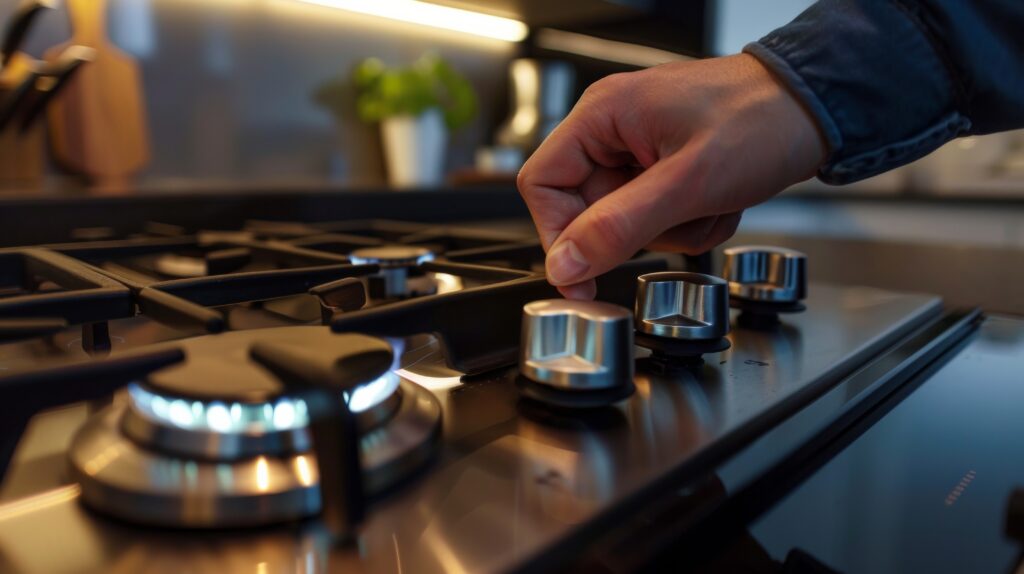Stay safe at home: Expert gas leak safety tips.

Did you know around 125,000 households experience gas leaks each year? Despite its daily importance for heating and cooking, gas can also pose serious safety hazards. That’s why it’s important to stay informed and proactive. Follow our expert-backed gas leak safety tips to protect your home and family.
Recognizing the signs of a gas leak:
Identify unusual odors. One of the most recognizable signs of a gas leak is the distinct odor of rotten eggs or sulfur. Gas companies add this odorant to natural gas to help people detect leaks quickly. If you notice this smell, take immediate action.Listen for hissing sounds. If you hear a hissing or whistling sound near a gas appliance or gas line, it could indicate a leak is present and requires attention.Pay attention to physical symptoms. Gas leaks can cause physical symptoms, such as headaches, dizziness, nausea, fatigue, and irregular breathing.Monitor your pets and environment. Pets can sometimes sense changes in the environment before humans do. If your pets are acting unusually agitated, lethargic, or if they suddenly become ill without any apparent cause, it could be a sign of a gas leak affecting their sensitive respiratory systems.
Steps to take in case of a gas leak:
Evacuate your home immediately. If you suspect a gas leak, evacuate everyone from the home to a safe location outdoors as quickly as possible.Ventilate the area. Open all doors and windows to ventilate the area and allow the gas to disperse safely.Shut off the gas supply. If it is safe to do so and you know how, turn off the gas supply at the main valve. This valve is typically located on the gas meter, usually outside a building or home.Contact emergency services. Call your gas company’s emergency hotline immediately from outside. Contact emergency services if anyone needs medical attention.
Preventive measures for gas safety:
Schedule regular maintenance checks. Ensure gas appliances receive regular inspections and maintenance by qualified technicians to keep them in prime working condition.Routinely test for leaks using soapy water. A simple and effective do-it-yourself test is to mix water with dishwashing soap inside a spray bottle and spray the solution directly on pipes, hoses, and valves. If there is a leak, the solution will bubble where the leak is detected. Be sure to avoid using any soaps that contain ammonia, as this can cause brass fittings to become brittle and crack.Install gas detectors. Consider installing a gas detector in your home, especially in areas where gas appliances are used frequently. These detectors can provide an early warning of gas leaks before they become hazardous.
With these gas leak safety tips, you can stay safe, vigilant, and proactive. And to get even more peace of mind for your home, talk to a local, independent agent about coverage today.
This content was developed for general informational purposes only. While we strive to keep the information relevant and up to date, we make no guarantees or warranties regarding the completeness, accuracy, or reliability of the information, products, services, or graphics contained within the blog. The blog content is not intended to serve as professional or expert advice for your insurance needs. Contact your local, independent insurance agent for coverage advice and policy services.







